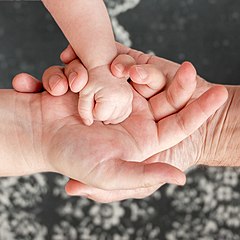
- This event has passed.
Parental Rights and Family Relations in a Postmodern Age
September 22, 2023 at 3:00 PM - September 23, 2023 at 6:00 PM

What is at stake when the family and the law intersect? As part of its ongoing cultural engagement, the John Paul II Institute will host a gathering of scholars in law, politics, philosophy, and theology to discuss “Parental Rights and Family Relations” on Sept. 22-23. Co-sponsors of the event are the Center for Law and the Human Person at CUA’s Columbus School of Law and the Alliance Defending Freedom.
Limited seats are available for students of the Institute and the Columbus School of Law to audit the discussions. Interested students may contact [email protected] to sign up to attend.
Event Description
When Terry McAuliffe stated during his 2021 Virginia Gubernatorial campaign that he didn’t “think parents should be telling schools what they should teach,” he ignited a small firestorm that may have cost him the election. The statement betrayed the smug and high-handed attitude of education bureaucrats and teachers’ union officials. Yet, McAuliffe’s gaffe represented a relatively mild version of a larger trend in which more radical calls for “rethinking” the family in toto echo through the academy and government. The trend is not only in the direction of assimilating parental authority to public institutions; it also includes, perhaps paradoxically, privatizing and contractualizing currents, for example in surrogacy arrangements. In either case, the effect is to diminish or deny the importance of the natural relationship between the parents and the child and, by implication, in the other familial relationships as well.
McAuliffe’s statement alludes to parental objections concerning the education offered by public schools. But American law poses many challenges for parents beyond books and curricula. The Covid pandemic’s various mandates were simply the latest twist on the long-running issue of parental authority over, or even knowledge of, medical and other life-altering decisions, for example in cases of abortion or “gender transition.” Then there is the question of the basis for deciding custody battles, the termination of parent-child relationships, the requirements for adoption, and the larger ambiguities and implications of the “child’s best interests” and “parental fitness” standards. Finally, there are the many questions raised by new biotechnological practices, which have twisted and fragmented parenthood into a cluster of gametic, genetic, gestational, contractual, psychological, associational, and other “parts” or aspects.
Each of these vexed areas, as well as others, raises issues concerning the basis and nature of parental rights and duties under American law. But each also raises profound philosophical and theological questions. The same-sex marriage movement, for example, forced a wider reassessment of the nature of the parent-child relationship, of its normative value and anthropological centrality. Of course, “rethinking” the parent-child relationship has implications for all familial relationships and reveals a drift toward the displacement of natural familial relations by non-familial institutions. Certainly, these issues, played out in their distinctively American ways, are nevertheless universal in their scope. Pierre Manent, for example, has spoken of our “metaphysical” ambition “to inscribe in positive law the thesis according to which the just or legitimate human order excludes all reference to a natural norm or purpose.”
Of course, law has always played a crucial role, whether to set conditions for marriage or divorce, to mediate marriage’s effects, for example inheritance (cf. Leo XIII, Arcanum divinae sapientia), to establish lines of succession, or to intervene in cases of abuse or neglect. But more fundamentally, familial relationships are not only “natural” with an overlay of positive law. Rather, the very genesis of law is deeply involved with the developing sense of both marriage and the family. Indeed, this simultaneity of development is a mark of civilization in its origins. This observation invites reflection on precisely how the family, law, and civilization do and should relate.
Our symposium seeks to address these questions and more, specifically from the point of view of law, philosophy, and theology.